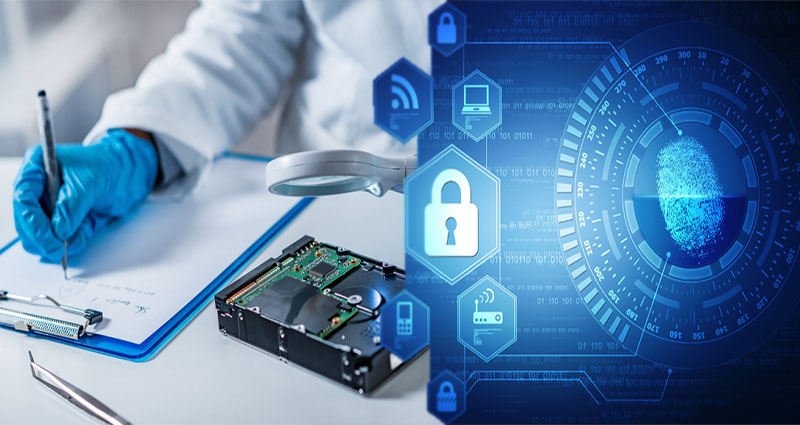A bachelor’s degree is typically required for an entry-level position in computer forensics. It may be part of a broader field like criminal justice or computer science. Associate degrees are also required for some positions. If you already have some experience in computer forensics, you may qualify for an investigator role by having an associate’s degree combined with the necessary certifications. If you have the required education and certifications, you may be able to get a job with a higher salary and better working conditions.
Job description
The computer forensics job description for a digital forensics expert must cover the legal aspects of digital criminology and current laws surrounding computer crimes. Generally, a digital forensics investigator will work in a computer lab environment, where they will apply forensic software to affected hardware and collect sensitive data and evidence for court-related proceedings. In some cases, they may also investigate the location of data on a computer to link the activity to a specific person or organization. After recovering data, forensics investigators then compile reports that include the findings. As their job description suggests, computer forensics investigators are typically very technologically skilled and legal as well.
Among the duties of a computer forensics analyst are reviewing, testing, and analyzing an organization’s virtual infrastructure for vulnerabilities and inefficiencies. They work to prevent cyber attacks by developing and implementing systems security protocols to combat malware. During investigations, computer forensics analysts document the characteristics of malware attacks and prepare protocols for organizations to combat malicious software. They also investigate crime scenes to gather critical information. Ultimately, these professionals play an essential role in determining whether a crime is committed on a computer and if criminals are responsible.
Salary
A salary for computer forensics jobs varies widely depending on experience, location and industry. Some roles require extensive travel, while others are primarily office-based, with occasional off-site meetings or court appearances. Although computer forensics jobs are increasingly in demand, the pay is also competitive, and some organisations even offer competitive bonuses. If you have strong computer-forensics skills and are interested in becoming a cyber security expert, this job may be the perfect fit for you.
The high-profile data breaches recently have made careers in computer forensics a hot topic. These individuals have unique skills and investigate the cause of data breaches. These professionals also work with government agencies and companies to secure their networks against such attacks. Just one recent example of a data breach is the Equifax leak, but there are hundreds more similar situations that need to be investigated. To become a computer forensic specialist, you’ll need to master a number of skills.
Education required
The educational requirements for computer forensics jobs vary depending on the field. Most programs require at least 120 credits to complete, but some take longer. A bachelor’s degree is sufficient for most positions. While some employers may prefer candidates with a master’s degree, the bachelor’s degree is still required. Interested individuals may also pursue certification as a Certified Forensic Computer Examiner (CFCE). This credential requires solving and presenting problems in a formal examination and peer review.
Computer forensics jobs require a bachelor’s degree. The education required for this field is a mix of legal and computer knowledge. You will study criminal and business law in addition to courses on computer systems. You will also take general education courses that stress technical writing and public speaking. In addition, you’ll learn how to analyze encrypted data. The higher level of your education, the better. As a result, you’ll have a better chance of getting hired in the field.
Work environment
A career in computer forensics involves a variety of responsibilities, from researching and documenting evidence to writing reports and explaining complex concepts to non-technical audiences. Forensics investigators may also be asked to investigate illegal computer activity and locate location data to tie the data to an individual. These jobs require extensive technical knowledge and training, including the use of the latest forensic software. They may also be required to know the laws governing data privacy.
If you’re interested in a career in computer forensics, there are many benefits to getting started. Salaries can be high and there’s a wide range of work environments and specializations within this field. Depending on your interests, you can choose a career in this field that allows you to be creative while helping the community. Before you begin your search for a job in computer forensics, learn as much as you can about the field, including the type of jobs available.








